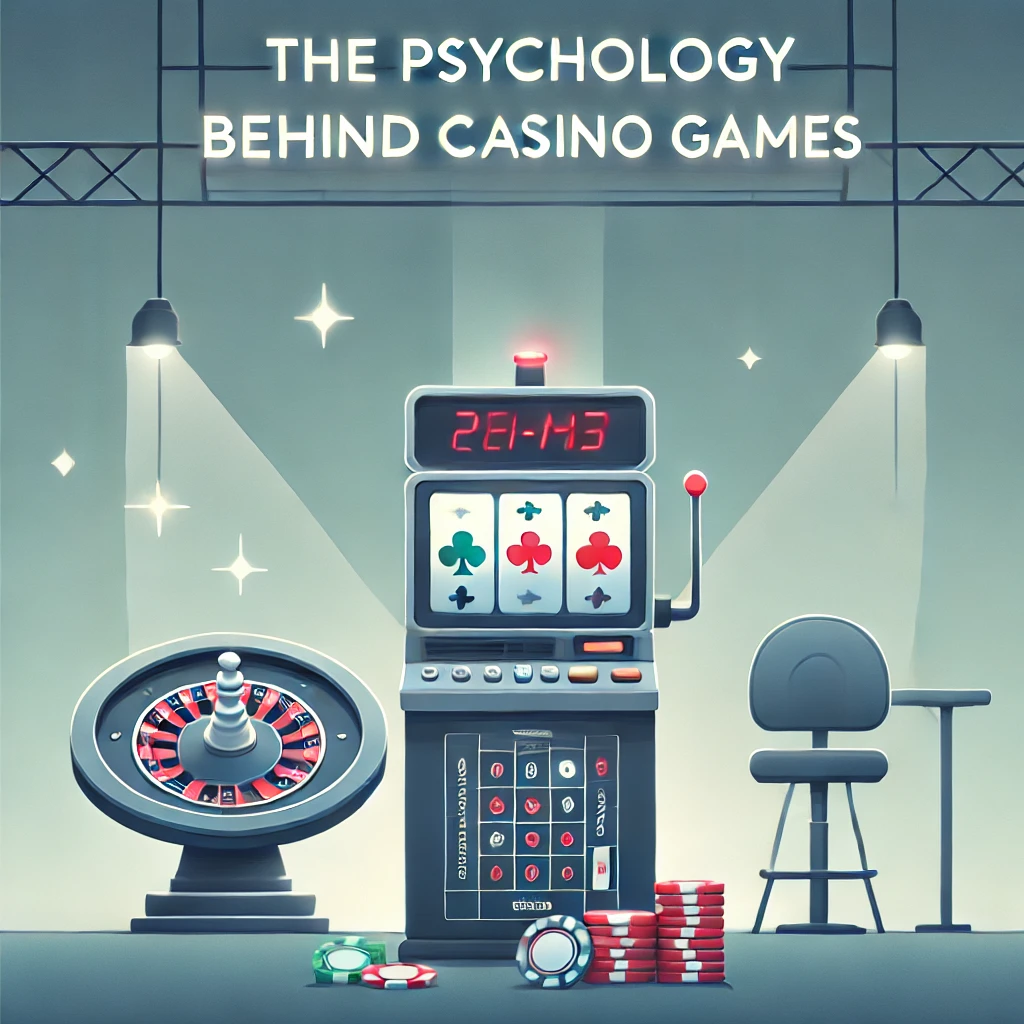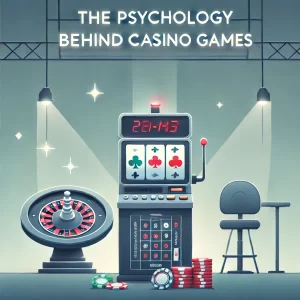Casino games have a unique allure, don’t they? They sparkle with excitement, promising riches, and for just a moment, they make you feel like luck is on your side. But what if I told you it’s not just luck or excitement that keeps you playing? Behind every spin of a roulette wheel or pull of a slot machine, there are carefully designed tactics at play, subtly nudging you to stay longer, bet bigger, and return for more.
So, let’s pull back the curtain. Here’s how casinos—both online and in the real world—use psychology to make sure you’re hooked.
The Tempting “Almost-Win”
Picture this: you’re playing a slot machine, and two cherries appear on the reels. Your heart skips a beat. Just one more cherry and you’re walking away with a jackpot. But then… nothing. A lemon shows up instead, and your win evaporates. Yet, instead of leaving, you find yourself pressing that button again, thinking, “Just one more try.”
That’s no accident. It’s called the near miss, and casinos have mastered it. Your brain, wired for reward, can’t tell the difference between an actual win and a close call. That moment of “almost” triggers the same excitement as winning, making you feel like you’re just one step away from victory. And, of course, it keeps you playing.
Random Wins: The Magic of Uncertainty
If you’ve ever played a slot machine or bet on a sports game, you know this feeling: the unpredictability. You don’t win every time—far from it—but every now and then, when you least expect it, the numbers line up in your favor. That momentary thrill is intoxicating.
This randomness isn’t just luck. It’s psychology, known as variable reinforcement. Our brains love surprises, especially when they come in the form of wins. Casinos scatter rewards unpredictably, knowing that this “what if” mentality will keep you going. The sheer unpredictability turns every spin or bet into a moment of anticipation, one that’s hard to walk away from.
Lights, Sounds, and a Little Bit of Magic
Walk into any casino, and you’ll notice something. The air is electric, filled with flashing lights, the sound of coins clinking, and jubilant cheers. Even in online casinos, you hear that satisfying “ding” when you win. All this sensory overload isn’t just for show—it’s a powerful tool.
When you hear those sounds and see those lights, your brain releases dopamine—the same chemical responsible for pleasure and happiness. It feels good, and that feeling sticks with you. Casinos craft every sound, every flash of light, to create an environment that feels rewarding, even when you’re losing. And it works—players keep coming back for the experience, not just the potential wins.
The Sunk Cost Trap: Too Deep to Walk Away
Now let’s talk about something that gets almost everyone: the feeling that you’re already in too deep. Say you’ve been playing blackjack for an hour, your chips dwindling. You know you should walk away, but then a thought creeps in: “I’ve already spent so much time and money. One more round can’t hurt.” And so, you stay.
This is the sunk cost fallacy. Our minds are wired to hate loss, and we’ll do almost anything to avoid it—even when we know it’s irrational. Casinos know this, and they design games to keep you on the edge, so you feel like you’ve invested too much to leave without a win.
The Illusion of Control: “I Can Win This”
Ever rolled dice in a game of craps, thinking you could throw the perfect number? Or hit in blackjack, believing you could turn things around? This feeling, that you have control over an outcome that’s mostly luck, is another trick up the casino’s sleeve.
In games like blackjack or poker, there’s skill involved, sure. But in many casino games—slots, roulette, even betting—it’s chance. Yet, players often feel they can beat the odds with the right moves. This is called the illusion of control, and it’s a powerful motivator to keep playing. After all, if you can influence the outcome, why not stay and try?
Online casinos take this a step further, letting players customize avatars, choose their bets, or play “live” games. These interactions make it feel like you’re in control when, really, the house is still in charge.
The Loyalty Hook: Why Freebies Aren’t Free
Have you ever been offered a “free spin” or a “welcome bonus” when you sign up for an online casino? Those perks aren’t as generous as they seem. While casinos want to make you feel valued, they’re also setting you up for more gameplay.
Loyalty programs are everywhere—whether it’s a card at a land-based casino or points collected at an online one. The idea is simple: the more you play, the more rewards you get. But these rewards often come with conditions that keep you playing longer. It’s a clever trick—offering something “free” while ensuring you spend more in the long run.
The Crowd Effect: Everyone’s Doing It
Here’s something interesting. Ever notice how casinos are always bustling with people? Even online casinos show you how many players are in a game or let you chat with others. This isn’t just to make it social—it’s psychological.
This is called social proof. We’re more likely to do something when we see others doing it. When you walk into a crowded casino or log into an online game with lots of active players, it feels like everyone’s having fun and winning. And if they’re doing it, why shouldn’t you?
The Gambler’s Fallacy: “My Luck Will Change”
Lastly, let’s talk about something every gambler has felt: the belief that a win is just around the corner. Maybe the roulette ball has landed on red five times in a row, and you think, “Black is due now.” But here’s the thing—luck doesn’t work like that. Each spin is independent of the last. This is the gambler’s fallacy, the mistaken belief that past outcomes affect future ones.
Casinos rely on this kind of thinking. It keeps players at the table, convinced that their “big win” is just a bet away. And so, they stay, and they play, even when the odds remain the same.
Final Thoughts
Casinos—whether online or in-person—aren’t just about luck or entertainment. They’re carefully designed experiences, using psychology to keep you playing, betting, and hoping for that next big win. From the near-miss effect to the rush of variable rewards, every aspect of the casino environment is crafted to hold your attention.
Knowing these tricks can help you enjoy the experience more mindfully. After all, it’s always fun to play—just be aware of what’s happening behind the scenes.









